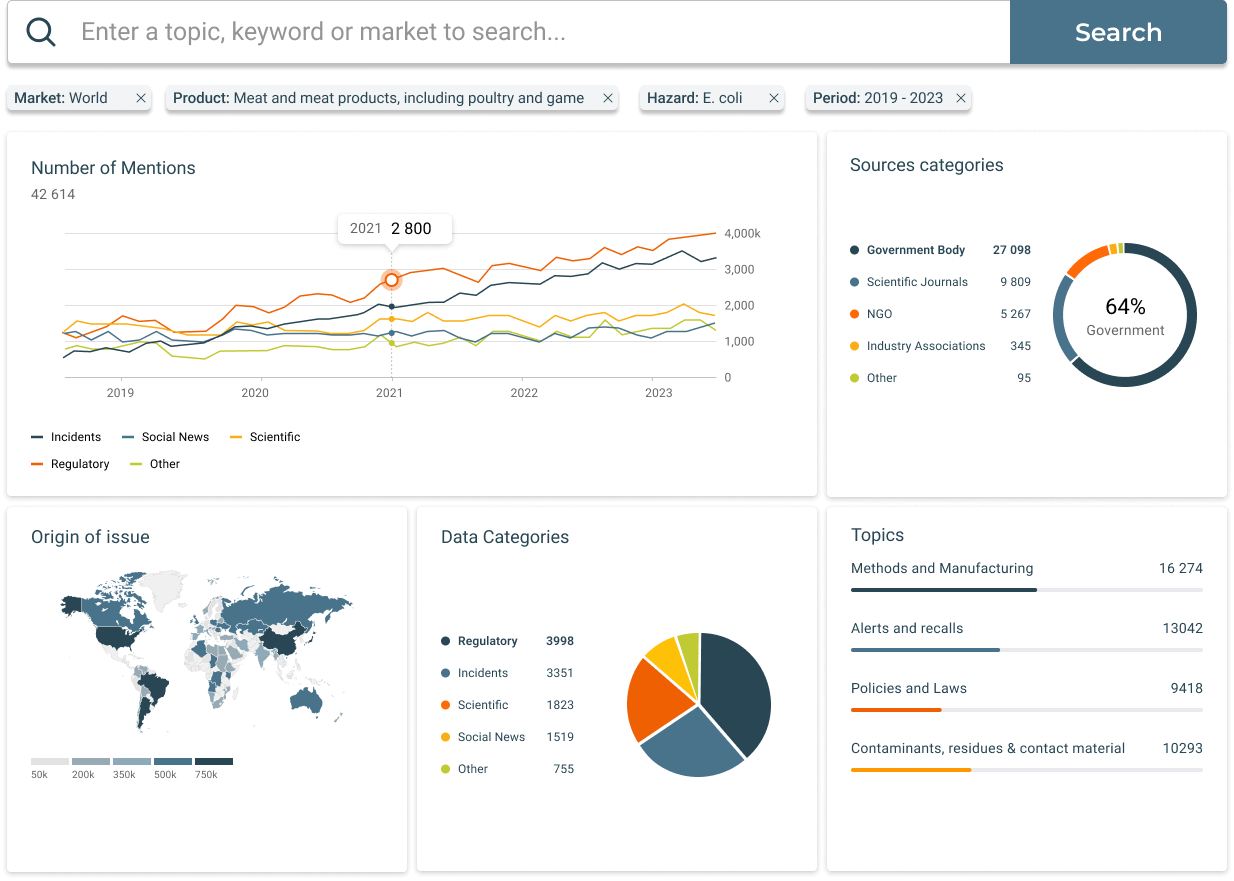
The food industry works under severe guidelines to guarantee that all items are alright for utilization. Food Safety and Regulatory Compliance assume a fundamental part in safeguarding general wellbeing, keeping up with buyer certainty, and guaranteeing the smooth activity of organizations inside the food production network. Complying with these guidelines forestalls foodborne diseases as well as assists organizations with keeping away from legitimate outcomes and keep up with their standing.
Table of Contents
Key Food Safety Guidelines All over the Planet
HACCP (Peril Examination and Basic Control Focuses):
HACCP is a worldwide perceived administration framework that tends to food safety through the examination and control of organic, substance, and actual perils. Numerous nations, including the US and the European Association, require HACCP execution in different areas of the food industry. It’s a basic part of food safety and hazard the executives.
FDA Food Safety Modernization Act (FSMA):
In the US, the FSMA addresses one of the main food safety regulations. It centers around forestalling food safety issues before they happen, instead of responding to flare-ups. This regulation gives the FDA greater position to implement compliance, investigate offices, and command reviews when vital.
European Association Guidelines:
In the EU, food safety is administered by the European Food Safety Authority (EFSA). The Overall Food Regulation (Guideline (EC) 178/2002) frames the safety principles that food makers, processors, and wholesalers should follow. EU guidelines stress discernibility, straightforwardness, and a science-based way to deal with food safety.
Codex Alimentarius:
Created by the Food and Horticulture Association (FAO) and the World Wellbeing Association (WHO), the Codex Alimentarius is a bunch of global food principles and rules. It fills in as a kind of perspective for some nations while fostering their own food safety guidelines and is particularly significant in global exchange.
For additional perusing, you might need to investigate the Codex Alimentarius documentation accessible on the web. It gives an extensive manual for worldwide food safety norms.
Challenges in Regulatory Compliance
Continually Advancing Guidelines:
Perhaps of the greatest test food organizations face is staying aware of evolving guidelines. Overseeing bodies habitually update safety rules to address new dangers, advancements, and purchaser requests. Organizations should remain informed and be ready to carry out new compliance gauges rapidly.
Worldwide Inventory Chains:
With the globalization of the food store network, guaranteeing compliance across different districts can be complicated. Various nations have different food safety regulations, and organizations that import or commodity food items need to explore these fluctuating principles. Resistance in any district can influence an organization’s worldwide tasks.
Documentation and Record-Keeping:
Compliance with food safety guidelines frequently requires broad documentation, including records of safety techniques, quality control checks, reviews, and preparing. Guaranteeing that all documentation is precise and forward-thinking can be a tedious cycle yet is basic to passing examinations and reviews.
For organizations hoping to further develop their documentation processes, research papers on computerized documentation in food safety can give bits of knowledge into how innovation can facilitate the weight of record-keeping.
The Job of Food Safety Software in Compliance
Numerous organizations are going to Food Safety Software to effectively oversee regulatory compliance. This innovation permits organizations to mechanize cycles, for example, checking basic control focuses, keeping up with records, and creating compliance reports. This is the way food safety software can help:
Mechanized Compliance Checking:
Software arrangements screen safety rehearses continuously, assisting organizations with remaining agreeable with guidelines like HACCP and FSMA. Computerized alarms inform staff on the off chance that any compliance issue emerges, taking into account speedy goal.
Review Preparation:
Getting ready for reviews becomes simpler with food safety software, which stores generally fundamental records in a single spot and produces compliance reports. This recoveries time as well as guarantees organizations are consistently review prepared.
Worldwide Compliance:
For organizations that work globally, food safety software can assist with overseeing compliance across various areas by following the different guidelines that apply to each market. This concentrated administration approach guarantees that items fulfill worldwide guidelines without exorbitant postponements or disturbances.
Advantages of Keeping up with Food Safety Compliance
Forestalling Foodborne Ailments:
The essential objective of regulatory compliance is to safeguard general wellbeing by forestalling foodborne ailments. By adhering to safety guidelines, organizations diminish the gamble of pollution and flare-ups.
Legitimate Security:
Rebelliousness with food safety guidelines can bring about claims, fines, and other lawful outcomes. Remaining consistent guarantees that organizations are shielded from lawful dangers.
Further developed Brand Notoriety:
Buyers are bound to believe brands that are straightforward about their safety rehearses and comply with food safety guidelines. Compliance fabricates shopper certainty and can give a business an upper hand.
Staying away from Reviews:
Food item reviews can be exorbitant and harming to an organization’s standing. By keeping up with severe compliance, organizations diminish the probability of reviews because of safety issues.
The Eventual fate of Food Safety Compliance
With propelling innovation, the fate of food safety and compliance will probably zero in on additional robotization, man-made brainpower, and constant information examination. These progressions will make it simpler for organizations to track and screen food safety continuously and anticipate expected takes a chance before they become difficult issues.
For those keen on the mechanical advances in food safety, investigating late examination papers on man-made intelligence in food safety can offer a brief look into how prescient examination and AI are reshaping the industry.
Food Safety and Regulatory Compliance are fundamental to guaranteeing the safety and respectability of the worldwide food supply. By complying with guidelines, organizations safeguard general wellbeing as well as upgrade their functional proficiency, legitimate insurance, and brand notoriety. As food safety regulations keep on developing, embracing progressed arrangements like food safety software and remaining informed on the most recent principles is fundamental for long haul outcome in the industry.
For those hoping to jump further into the legitimate parts of food safety, extra assets, for example, FDA compliance rules or EFSA regulatory archives are strongly suggested for additional perusing.






